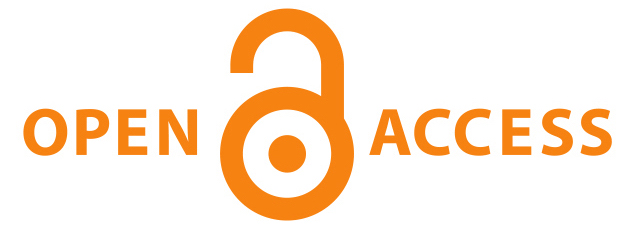The Moderating Role of Socio-cultural Factors and Perceived Enjoyment in Social Media-Assisted EFL Learning: A Systematic Review
DOI:
https://doi.org/10.56868/jadhur.v4i3.313Keywords:
Social media, EFL Learning, Socio-Cultural Factors, Perceived Enjoyment, Saudi Arabia, Higher EducationAbstract
This systematic review examines the influence of socio-cultural factors and perceived enjoyment on Saudi university students' use of social media for learning English as a Foreign Language. The review identifies key cultural and motivational determinants that shape the effectiveness of social media-based language learning and introduces a conceptual model to guide future research. Employing the PRISMA framework, 45 studies published between 2015 and 2024 in Scopus and Web of Science were analysed. The findings reveal four primary themes: socio-cultural barriers and supports influenced by gender norms and religious expectations; perceived enjoyment functioning as both a motivator and a potential distraction; variations in learning behaviours across platforms such as YouTube, Facebook, and X/Twitter; and tensions between informal and formal learning environments. This review synthesizes global evidence regarding the impact of socio-cultural factors and enjoyment on EFL learning facilitated by social media. The principal contribution is a novel conceptual model integrating socio-cultural theory and the Technology Acceptance Model with perceived enjoyment.
References
Afzal, M., Junejo, A., & Khoso, A. K. (2025). Bridging instructional excellence and student success: exploring how faculty management influences academic performance and loyalty through the lens of student self-efficacy. International Premier Journal of Languages & Literature, 3(1), 54-75. https://ipjll.com/ipjll/index.php/journal/article/view/46
Al Fraidan, A., & Al-Harazi, E. M. (2023). Using social media platforms to prepare for examinations post Covid-19: The case of Saudi University EFL learners. Heliyon, 9(11). https://doi.org/10.1016/j.heliyon.2023.e21320
Al Khader, K. (2018). A cultural-historical activity theory exploration into the use of social media in women's English language education in Saudi Arabia: Possibilities and challenges (Doctoral dissertation, University of Manchester). University of Manchester. https://pure.manchester.ac.uk/ws/portalfiles/portal/84026475/FULL_TEXT.PDF
Alamri, M. M. (2023). A model of e-learning through achievement motivation and academic achievement among university students in Saudi Arabia. Sustainability, 15(3), 2264. https://doi.org/10.3390/su15032264
Al-Azawei, A., & Alowayr, A. (2020). Predicting the intention to use and hedonic motivation for mobile learning: A comparative study in two Middle Eastern countries. Technology in Society, 62, 101325. https://doi.org/10.1016/j.techsoc.2020.101325
Albahiri, M. H., Alhaj, A. A. M., & Abdelkarim, M. (2023). Teaching-Related Use of Social Media Among Saudi EFL Teachers: Revisiting the Innovative Technology. Theory & Practice in Language Studies (TPLS), 13(12). https://doi.org/10.17507/tpls.1312.15
Albazie, H. A. (2023). Factors affecting the use of e-learning in Saudi Arabia: An analysis of academics’ perspectives (Doctoral dissertation, University of Glasgow). University of Glasgow. https://theses.gla.ac.uk/id/eprint/83983
Aldogiher, A., Halim, Y. T., El-Deeb, M. S., Maree, A. M., & Kamel, E. M. (2025). The Impact of Digital Teaching Technologies (DTTs) in Saudi and Egyptian Universities on Institutional Sustainability: The Mediating Role of Change Management and the Moderating Role of Culture, Technology, and Economics. Sustainability, 17(5), 2062. https://doi.org/10.3390/su17052062
Alghazzawi, D. M., Hasan, S. H., Aldabbagh, G., Alhaddad, M., Malibari, A., Asghar, M. Z., & Aljuaid, H. (2021). Development of platform independent mobile learning tool in Saudi universities. Sustainability, 13(10), 5691. https://doi.org/10.3390/su13105691
Alhamadi, A. A. (2017). The influence of social media on Saudi graduate students: An explanatory case study of six Saudi graduate students studying in American universities (Doctoral dissertation, Kansas State University). Kansas State University. http://hdl.handle.net/2097/38211
Alharthi, S. M. (2024). Beyond traditional language learning: EFL student views on ChatGPT in Saudi Arabia. Arab World English Journal (AWEJ) Special Issue on CALL Number 10. 15-35 DOI: https://dx.doi.org/10.24093/awej/call10.2
Ali, J., Madni, S. H. H., Jahangeer, M. S. I., & Danish, M. A. A. (2023). IoT adoption model for e-learning in higher education institutes: a case study in Saudi Arabia. Sustainability, 15(12), 9748. https://doi.org/10.3390/su15129748
Aljeeran, R. (2016). The role of socio-cultural factors in faculty members’ acceptance of Moodle at GUST (Doctoral dissertation, The Ohio State University). The Ohio State University. http://rave.ohiolink.edu/etdc/view?acc_num=osu1469121024
Alkamel, M. A. A. (2024). Social media in teaching English for EFL students: A review of challenges and suggestions. International Journal of English Teaching and Learning, 2(1), 8-17. https://doi.org/10.11648/j.ijetl.20240201.12
Al-khresheh, M. H., Al Basheer Ben Ali, R., Jillani, S. S., & Alenezi, S. M. F. (2025). Peer assessment in EFL oral presentations: Saudi students’ perspectives and self-efficacy in peer evaluation. Language Testing in Asia, 15(1), 18. https://doi.org/10.1186/s40468-025-00353-0
Almathami, R., & Mair, J. (2023). Socio-cultural barriers to Saudi womens participation in the tourism industry: a systematic literature review. A Research Agenda for Gender and Tourism, 91-112. https://doi.org/10.4337/9781789902532.00011
Al-Motrif, A., Aseery, A. Y., Almalhy, K. M., Alfayez, A. A., & Omar, S. A. (2025). Exploring the use of social media for informal learning in professional development in Saudi Arabian higher education. Educational technology research and development, 1-38. https://doi.org/10.1007/s11423-025-10511-z
Alnemari, A. (2023). Analysing affective factors in relation to students’ achievement and behaviour in EFL in Saudi Arabia (Doctoral dissertation, Cardiff University). Cardiff University. https://orca.cardiff.ac.uk/id/eprint/161766
Alqahtani, A. A. (2024). Using technology to assist in EFL vocabulary acquisition and reading comprehension. English Language Teaching, 17(4), 70-81. https://doi.org/10.5539/elt.v17n4p70
Alqahtani, M. H. (2024). Women in Saudi secondary school EFL textbooks: a critical study of women’s empowerment as enshrined in the Saudi Vision 2030. Frontiers in Sociology, 9, 1307623. https://doi.org/10.3389/fsoc.2024.1307623
Alqahtany, H. (2022). How can participation in Second Life help develop communicative competence? A case study of female EFL learners in Saudi Arabia (Doctoral dissertation, University of Warwick). University of Warwick. http://webcat.warwick.ac.uk/record=b3912480
Alqarni, S. M. (2021). Students' and teachers' perspectives towards the use of social media technologies as a supportive learning tool in English language classes: A case study from a university in Saudi Arabia (Doctoral dissertation, University of Glasgow). University of Glasgow. https://theses.gla.ac.uk/82444
Al-qdah, M., Alanezi, S., Alyami, E., & Ababneh, I. (2025). Gender Differences in E-Learning Tool Usage Among University Faculty Members in Saudi Arabia Post-COVID-19. COVID, 5(5), 71. https://doi.org/10.3390/covid5050071
Al-Seghayer, K. (2024). Pragmatic Competence in Saudi EFL Learners: Challenges, Consequences, and Strategies for Overcoming Barriers. Journal for the Study of English Linguistics, 12(209), 10-5296. https://doi.org/10.5296/jsel.v12i1.22438
Alshabeb, A. M., & Traxler, J. (2020). The potential of using mobile social media applications for language learning: A case study in Saudi higher education (Doctoral dissertation, University of Wolverhampton). University of Wolverhampton. http://hdl.handle.net/2436/623768
Alshammari, A., & Fayez Alanazi, M. (2023). Use of technology in enhancing learning among nurses in Saudi Arabia; a systematic review. Journal of Multidisciplinary Healthcare, 1587-1599. https://doi.org/10.2147/JMDH.S413281
Alsheddi, A. (2020). The impact of socio-cultural and religious values on the adoption of technological innovation: A case study of Saudi Arabia (Doctoral dissertation, University of Canberra). University of Canberra. https://doi.org/10.26191/29mt-7v40
Althuwaini, A. M., Herring, S. C., & Obeng, S. G. (2025). Users’ Discourse from primarily US-focused subreddits about the Political Image of the Kingdom of Saudi Arabia from 2015 to 2023. Computers in Human Behavior Reports, 17, 100543. https://doi.org/10.1016/j.chbr.2024.100543
Alzighaibi, A. F. (2024). Students’ and teachers’ perceptions and practices of intercultural communication awareness in an ELT program at a Saudi Arabian university (Doctoral dissertation, University of Southampton). University of Southampton. http://eprints.soton.ac.uk/id/eprint/494818
Alzubi, A. A. F., & Singh, M. K. (2018). The Impact of Social Strategies through Smartphones on the Saudi Learners' Socio-Cultural Autonomy in EFL Reading Context. International Electronic Journal of Elementary Education, 11(1), 31-40. https://doi.org/10.26822/iejee.2018143958
Braun, V., & Clarke, V. (2006). Using thematic analysis in psychology. Qualitative research in psychology, 3(2), 77-101. https://doi.org/10.1191/1478088706qp063oa
Davis, F. D. (1989). Perceived usefulness, perceived ease of use, and user acceptance of information technology. MIS quarterly, 319-340. https://doi.org/10.2307/249008 b
Davis, F. D., Bagozzi, R. P., & Warshaw, P. R. (1992). Extrinsic and intrinsic motivation to use computers in the workplace. Journal of applied social psychology, 22(14), 1111-1132. https://doi.org/10.1111/j.1559-1816.1992.tb00945.x
Frikha, M. (2025). Extracurricular physical activities and academic achievement in Saudi female physical education students: the mediating effect of motivation, enjoyment, and BMI. Frontiers in Psychology, 16, 1420286. https://doi.org/10.3389/fpsyg.2025.1420286
He, L., & Li, C. (2023). Continuance intention to use mobile learning for second language acquisition based on the technology acceptance model and self-determination theory. Frontiers in Psychology, 14, 1185851. https://doi.org/10.3389/fpsyg.2023.1185851
Jamshed, M., Saleem, M., Alam, I., & Warda, W. U. (2024). Investigating the educational and social factors affecting Saudi EFL learners' attitudes toward learning English. World Journal of English Language, 14(4). https://doi.org/10.5430/wjel.v14n4p588
Khoso, A. K., Honggang, W., & Afzal, M. (2024). Unraveling the impact of Facebook addiction on EFL students: a dual lens on self-esteem and academic achievement. Russian Law Journal, 12(2), 1167-1187. https://cyberleninka.ru/article/n/unraveling-the-impact-of-facebook-addiction-on-efl-students-a-dual-lens-on-self-esteem-and-academic-achievement5
Kolmykova, M., Gavrilovskaya, N., Barsukova, M., & Kozlovskaya, D. (2021). Use of Microblogging, Social Networking, and Short Messages in E-learning for Information Culture Building. International Journal of Emerging Technologies in Learning, 16(14). https://doi.org/10.3991/ijet.v16i14.22391
Luppicini, R., & Walabe, E. (2021). Exploring the socio-cultural aspects of e-learning delivery in Saudi Arabia. Journal of Information, Communication and Ethics in Society, 19(4), 560-579. https://doi.org/10.1108/JICES-03-2021-0034
Madkhali, H., Lugosi, P., & Hawkins, R. (2024). Socio-cultural drivers of Saudi tourists’ outbound destination decisions. Journal of Vacation Marketing, 30(3), 582-598. https://doi.org/10.1177/13567667231152937
Malik, S., Qin, H., & Oteir, I. (2021). Perceived Psychological, Linguistic and Socio-Cultural Obstacles: An Investigation of English Communication Apprehension in EFL Learners. International Journal of Instruction, 14(4), 733-752. https://doi.org/10.29333/iji.2021.14442a
Mantello, P., Ho, M. T., Nguyen, M. H., & Vuong, Q. H. (2023). Machines that feel: behavioral determinants of attitude towards affect recognition technology—upgrading technology acceptance theory with the mindsponge model. Humanities and Social Sciences Communications, 10(1), 1-16. https://doi.org/10.1057/s41599-023-01837-1
Mayer, B. S. (2025). Digital informal learning through connectivism and networked learning: the case of arabic culture groups. Discover Education, 4(1), 144. https://doi.org/10.1007/s44217-025-00526-2
Mohammed, A. E. T., & AbdAlgane, M. (2025). Investigating the Impact of Social Media as an EFL Learning Source in EFL Classrooms. Journal of Arts, Literature, Humanities and Social Sciences, (120), 404-426. https://doi.org/10.33193/JALHSS.120.2025.1435
Muhammad, R., & Nagaletchimee, A. (2023). The Effects of WhatsApp Based Lessons on Undergraduates’ Writing Accuracy. e-Jurnal Bahasa dan Linguistik (e-JBL), 5(1), 35-50. https://doi.org/10.53840/ejbl.v5i1.139
Munir, S., Anser, M. K., Shah, S. T. H., Islam, T., & Zaman, K. (2025). Emotional intelligence, support, and organizational culture’s impact on decision-making: mediation and moderation analysis in academia. Discover Education, 4(1), 1-38. https://doi.org/10.1007/s44217-025-00720-2
Nahiduzzaman, K. M., Campisi, T., Shotorbani, A. M., Assi, K., Hewage, K., & Sadiq, R. (2021). Influence of socio-cultural attributes on stigmatizing public transport in Saudi Arabia. Sustainability, 13(21), 12075. https://doi.org/10.3390/su132112075
Paul, J., Lim, W. M., O’Cass, A., Hao, A. W., & Bresciani, S. (2021). Scientific procedures and rationales for systematic literature reviews (SPAR‐4‐SLR). International Journal of Consumer Studies, 45(4), O1-O16. https://doi.org/10.1111/ijcs.12695
Ping, W. (2022). Revisiting English as a foreign language teachers’ professional identity and commitment in social media-focused professional development. Frontiers in Psychology, 13, 992038. https://doi.org/10.3389/fpsyg.2022.992038
Qu, K., & Wu, X. (2024). ChatGPT as a CALL tool in language education: A study of hedonic motivation adoption models in English learning environments. Education and Information Technologies, 29(15), 19471-19503. https://doi.org/10.1007/s10639-024-12598-y
Sanchez-Soto, G. (2023). The consumption of K-media in Latine communities: Exploring the experiences of five fans (Master’s thesis, institutional repository). http://hdl.handle.net/20.500.12680/sx61dt49w
Valencia, D. C., & Duque, F. A. B. (2023). Technology acceptance model (TAM): a study of teachers’ perception of the use of serious games in the higher education. IEEE Revista Iberoamericana de Tecnologias del Aprendizaje, 18(1), 123-129. https://doi.org/10.1109/RITA.2023.3250586.
Wang, H., Hou, X., Liu, J., Zhou, X., Jiang, M., & Liao, J. (2025). Framework effect and achievement motivation on college students’ online learning intention–based on technology acceptance model (TAM) and theory of planned behaviour (TPB) model. Education and Information Technologies, 30(8), 11073-11097. https://doi.org/10.1007/s10639-024-13254-1
Wang, X. (2023). A conceptual review on EFL teachers’ motivation and engagement in flipped classrooms: A social networking platform. Language Related Research, 14(3), 239–264. https://doi.org/10.29252/LRR.14.3.10
Xu, X., & Thien, L. M. (2025). Unleashing the power of perceived enjoyment: Exploring Chinese undergraduate EFL learners' intention to use ChatGPT for English learning. Journal of Applied Research in Higher Education, 17(2), 578-593. https://doi.org/10.1108/JARHE-12-2023-0555
Zahira, K., Amna Zahid, C. H., & Munir, S. (2024). Media influence on English language proficiency: A study on ESL learners of Sialkot, Pakistan. Journal of Applied Linguistics and TESOL (JALT), 7(4), 79-98. https://jalt.com.pk/index.php/jalt/article/view/162.
Downloads
Published
How to Cite
Issue
Section
License
Copyright (c) 2025 Alsharari Taleb Falah, Lubna Ali Mohammed

This work is licensed under a Creative Commons Attribution 4.0 International License.
















